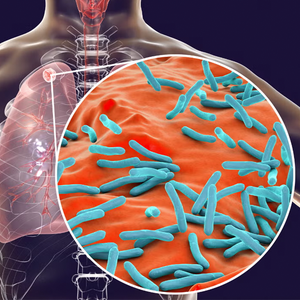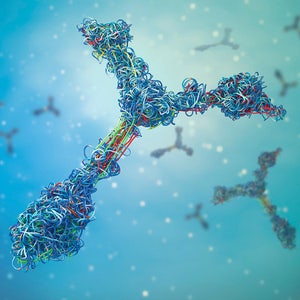- Who we serve
- Academia
Explore BioLegend
Learn about our world class antibodies for a diverse set of research areas including immunology, neuroscience, cancer, stem cells and cell biology.

- Pharma / Biotech
- Clinical Laboratories
- Healthcare Professionals
- Contract Research Organizations
- Academia
- Products
- Research & Development
- Genomic Analysis
- Nucleic Acid Isolation
- NGS Workflows
- Microplate Readers
- Microfluidic Nucleic Acid Analysis
- CRISPR Technologies
- RNA Interference
- Transfection and Ancillary Reagents
- Oligonucleotide Custom Synthesis
- cDNAs and ORF Clones
- Single-Cell Sequencing
- Labeled Nucleotides
- qPCR
- Library Prep Kits
- Magnetic Beads
- Viral Vector Products
- Protein Analysis
- Binding Assays
- Immunoassays
- Microfluidic Protein Characterization
- Microplate Readers
- Microplates
- Recombinant Proteins
- Western Blotting
- Sample Dissociation
- M-PVA Magnetic Beads
- Cell Analysis
- Cell Isolation
- Cell Lines & Stem Cells
- Cell Counting and Image Cytometry
- Cell Health & Viability
- Cellular Imaging & Analysis
- Immunoassays
- In Vivo Imaging
- Microplates
- Research Solutions
- Biomarker Discovery
- Cell and Gene Therapy
- GMP Workflows
- Biologics
- Small Molecule Drug Discovery
- Disease Research
- Target Class
- Drug Development
- Precision Medicine Research
- Functional Genomic Screening Solutions
- Assay Development Workflows
- Physiological Model Solutions
- Biobanking Workflows
- Agrigenomics Workflows
- Genomic Analysis
- Clinical & Diagnostics
- Reproductive Health
- Maternal and Prenatal Testing
- Newborn Screening
- Newborn Sequencing Research
- Pregnancy-Relevant Infections
- Endocrine Reproductive
- Cell-free DNA Analysis
- Neonatal Research
- Preimplantation Genetic Testing
- PlGF Testing Research
- Molecular Cytogenetics
- Infectious Diseases
- Tuberculosis Management
- EUROIMMUN Solutions
- IDS Solutions
- Nucleic Acid Isolation for Pathogen Detection
- Cytomegalovirus
- SARS-COV-2 Testing Solutions
- Bacterial & Viral Nucleic Acid Isolation
- Metagenomics
- Cancer
- ASR Flow Cytometry Antibodies
- HPV Testing
- ctDNA Workflows
- miRNA-seq Analysis
- Exosome/cfRNA Analysis
- Targeted Sequencing
- Mimix Reference Standards
- Functional Testing
- Autoimmunity
- Endocrinology
- Allergy
- Neurodegeneration
- Rapid Patient Testing
- Reproductive Health
- Reagents
- Platforms & Automation
- Nucleic Acid Purification
- chemagic Applications
- chemagic IVD Instruments
- chemagic IVD Kits
- chemagic Instruments
- chemagic Kits
- M-PVA Magnetic Beads
- Automated Liquid Handling
- Liquid Handling Workstations
- Automated Liquid Handling Applications
- Liquid Handling Consumables & Accessories
- Integrated Lab Automation
- Microfluidic Analysis
- Detection Solutions
- Microplate Readers
- Radiometric Detectors
- Radiochemicals
- Liquid Scintillation Cocktails
- Radiometric Consumables & Accessories
- Imaging
- Sample Homogenization
- In Vitro Diagnostics (IVD) Platforms & Automation
- IVD Nucleic Acid Isolation
- IVD Automated Liquid Handling
- IVD Radiometric Detectors
- EUROIMMUN Instruments
- IDS Instruments
- Clinical Applications
- Consumables & Accessories
- Cassettes
- Cell Harvesters
- In Vivo Imaging Accessories
- High-Content Imaging Accessories
- Microplates
- Radioactive Spill Cleaners
- Scintillation Cocktails
- Transfer Membranes
- Charcoal Traps
- Instrument Service & Maintenance
- Nucleic Acid Purification
- Consumables & Accessories
- Signals Software
- Revvity Omics Services
- Research & Development
- Services
- Preclinical Services
- Antibody Drug Conjugate Services
Preclinical services
Work with our experienced scientific team and leverage our advanced technologies to help accelerate the preclinical drug discovery process.

- Complex Cell Model Screening Services
Preclinical services
Work with our experienced scientific team and leverage our advanced technologies to help accelerate the preclinical drug discovery process.

- Base Editing Platform
- Pin-point base editing platform cell line engineering services
- Pin-point base editing platform pooled tiled screening services
Preclinical services
Work with our experienced scientific team and leverage our advanced technologies to help accelerate the preclinical drug discovery process.

- Immune Cell Screening
Preclinical services
Work with our experienced scientific team and leverage our advanced technologies to help accelerate the preclinical drug discovery process.

- Functional Genomic Screening Services
Preclinical services
Work with our experienced scientific team and leverage our advanced technologies to help accelerate the preclinical drug discovery process.

- Cell Panel Screening
Preclinical services
Work with our experienced scientific team and leverage our advanced technologies to help accelerate the preclinical drug discovery process.

- Cell Line Engineering
Preclinical services
Work with our experienced scientific team and leverage our advanced technologies to help accelerate the preclinical drug discovery process.

- Viral Vector Engineering and Manufacture
Preclinical services
Work with our experienced scientific team and leverage our advanced technologies to help accelerate the preclinical drug discovery process.

Preclinical services
Work with our experienced scientific team and leverage our advanced technologies to help accelerate the preclinical drug discovery process.

- Antibody Drug Conjugate Services
- Revvity Omics Services
- Revvity Omics Clinical Services
- Cytogenomics
- Global Laboratory Network
- Metabolic Testing
- Newborn Screening Services
- Prenatal Screening Services
- Rare Disease Testing
- Specialized and Customized Assays
- Sponsored Testing Programs
T-SPOT.TB testing services.
Revvity's Oxford Diagnostic Laboratories is a large referral laboratory for tuberculosis testing services based on our T-SPOT technology.

- Revvity Omics Pharma Services
T-SPOT.TB testing services.
Revvity's Oxford Diagnostic Laboratories is a large referral laboratory for tuberculosis testing services based on our T-SPOT technology.

T-SPOT.TB testing services.
Revvity's Oxford Diagnostic Laboratories is a large referral laboratory for tuberculosis testing services based on our T-SPOT technology.

- Revvity Omics Clinical Services
- Clinical & Testing Services
- Revvity Omics Clinical Services
T-SPOT.TB testing services.
Revvity's Oxford Diagnostic Laboratories is a large referral laboratory for tuberculosis testing services based on our T-SPOT technology.

- Revvity Omics Pharma Services
T-SPOT.TB testing services.
Revvity's Oxford Diagnostic Laboratories is a large referral laboratory for tuberculosis testing services based on our T-SPOT technology.

- Cellular and Humoral Immunoassays
T-SPOT.TB testing services.
Revvity's Oxford Diagnostic Laboratories is a large referral laboratory for tuberculosis testing services based on our T-SPOT technology.

- Tuberculosis Testing Services
T-SPOT.TB testing services.
Revvity's Oxford Diagnostic Laboratories is a large referral laboratory for tuberculosis testing services based on our T-SPOT technology.

T-SPOT.TB testing services.
Revvity's Oxford Diagnostic Laboratories is a large referral laboratory for tuberculosis testing services based on our T-SPOT technology.

- Revvity Omics Clinical Services
- Customization Services
- Assays and Reagents
T-SPOT.TB testing services.
Revvity's Oxford Diagnostic Laboratories is a large referral laboratory for tuberculosis testing services based on our T-SPOT technology.

- Microplate Services
T-SPOT.TB testing services.
Revvity's Oxford Diagnostic Laboratories is a large referral laboratory for tuberculosis testing services based on our T-SPOT technology.

- Custom Conjugation & Labeling
T-SPOT.TB testing services.
Revvity's Oxford Diagnostic Laboratories is a large referral laboratory for tuberculosis testing services based on our T-SPOT technology.

- Radiosynthesis and Labeling
T-SPOT.TB testing services.
Revvity's Oxford Diagnostic Laboratories is a large referral laboratory for tuberculosis testing services based on our T-SPOT technology.

T-SPOT.TB testing services.
Revvity's Oxford Diagnostic Laboratories is a large referral laboratory for tuberculosis testing services based on our T-SPOT technology.

- Assays and Reagents
- Licensing
- Gene Delivery Licensing
CHOSOURCE expression platform
Revvity's expression platform provides an enhanced system for the development and manufacturing of biotherapeutics that can be used in commercial manufacturing applications.

- Gene Expression Systems
CHOSOURCE expression platform
Revvity's expression platform provides an enhanced system for the development and manufacturing of biotherapeutics that can be used in commercial manufacturing applications.

- Pin-point Base Editing Platform
CHOSOURCE expression platform
Revvity's expression platform provides an enhanced system for the development and manufacturing of biotherapeutics that can be used in commercial manufacturing applications.

- Virus Screening
CHOSOURCE expression platform
Revvity's expression platform provides an enhanced system for the development and manufacturing of biotherapeutics that can be used in commercial manufacturing applications.

CHOSOURCE expression platform
Revvity's expression platform provides an enhanced system for the development and manufacturing of biotherapeutics that can be used in commercial manufacturing applications.

- Gene Delivery Licensing
- Viral Vector Engineering and Manufacture
- AAV Services
T-SPOT.TB testing services.
Revvity's Oxford Diagnostic Laboratories is a large referral laboratory for tuberculosis testing services based on our T-SPOT technology.

- Lentivirus Services
T-SPOT.TB testing services.
Revvity's Oxford Diagnostic Laboratories is a large referral laboratory for tuberculosis testing services based on our T-SPOT technology.

T-SPOT.TB testing services.
Revvity's Oxford Diagnostic Laboratories is a large referral laboratory for tuberculosis testing services based on our T-SPOT technology.

- AAV Services
- Instrument Service & Maintenance
- AV Services
T-SPOT.TB testing services.
Revvity's Oxford Diagnostic Laboratories is a large referral laboratory for tuberculosis testing services based on our T-SPOT technology.

- Equipment Service Plans
T-SPOT.TB testing services.
Revvity's Oxford Diagnostic Laboratories is a large referral laboratory for tuberculosis testing services based on our T-SPOT technology.

- On-demand Equipment Service
T-SPOT.TB testing services.
Revvity's Oxford Diagnostic Laboratories is a large referral laboratory for tuberculosis testing services based on our T-SPOT technology.

T-SPOT.TB testing services.
Revvity's Oxford Diagnostic Laboratories is a large referral laboratory for tuberculosis testing services based on our T-SPOT technology.

- AV Services
- Customer Training
- Expert-led Training
T-SPOT.TB testing services.
Revvity's Oxford Diagnostic Laboratories is a large referral laboratory for tuberculosis testing services based on our T-SPOT technology.

- Online Training
T-SPOT.TB testing services.
Revvity's Oxford Diagnostic Laboratories is a large referral laboratory for tuberculosis testing services based on our T-SPOT technology.

T-SPOT.TB testing services.
Revvity's Oxford Diagnostic Laboratories is a large referral laboratory for tuberculosis testing services based on our T-SPOT technology.

- Expert-led Training
- OEM Solutions
T-SPOT.TB testing services.
Revvity's Oxford Diagnostic Laboratories is a large referral laboratory for tuberculosis testing services based on our T-SPOT technology.

T-SPOT.TB testing services.
Revvity's Oxford Diagnostic Laboratories is a large referral laboratory for tuberculosis testing services based on our T-SPOT technology.

- Preclinical Services
- Company
- Purpose
- Careers
- Investor Relations
- Events
Investor Day 2024
Driving meaningful innovation that profoundly impacts science and human lives.

- Financials
Investor Day 2024
Driving meaningful innovation that profoundly impacts science and human lives.

- Stock Info
Investor Day 2024
Driving meaningful innovation that profoundly impacts science and human lives.

Investor Day 2024
Driving meaningful innovation that profoundly impacts science and human lives.

- Events
- ESG
- News
- Purpose
- Resources
- Product Support
- Application Support Knowledge base (ASK)
Tech documents, at your fingertips.
Quickly find and download manuals, safety documents, certificates of analysis and more.

- SDS Search
Tech documents, at your fingertips.
Quickly find and download manuals, safety documents, certificates of analysis and more.

- COA/TDS Search
Tech documents, at your fingertips.
Quickly find and download manuals, safety documents, certificates of analysis and more.

- Manual/IFU Search
Tech documents, at your fingertips.
Quickly find and download manuals, safety documents, certificates of analysis and more.

- SpectraViewer
Tech documents, at your fingertips.
Quickly find and download manuals, safety documents, certificates of analysis and more.

- RAD Calculator
Tech documents, at your fingertips.
Quickly find and download manuals, safety documents, certificates of analysis and more.

Tech documents, at your fingertips.
Quickly find and download manuals, safety documents, certificates of analysis and more.

- Application Support Knowledge base (ASK)
- Resource Center
Tech documents, at your fingertips.
Quickly find and download manuals, safety documents, certificates of analysis and more.

- Blog
Tech documents, at your fingertips.
Quickly find and download manuals, safety documents, certificates of analysis and more.

- Events
Tech documents, at your fingertips.
Quickly find and download manuals, safety documents, certificates of analysis and more.

- Customer Training
- Expert-led Training
Tech documents, at your fingertips.
Quickly find and download manuals, safety documents, certificates of analysis and more.

- Online Training
Tech documents, at your fingertips.
Quickly find and download manuals, safety documents, certificates of analysis and more.

Tech documents, at your fingertips.
Quickly find and download manuals, safety documents, certificates of analysis and more.

- Expert-led Training
- Help Center
- Order Support
Tech documents, at your fingertips.
Quickly find and download manuals, safety documents, certificates of analysis and more.

- Contact Us
Tech documents, at your fingertips.
Quickly find and download manuals, safety documents, certificates of analysis and more.

- Technical Support
Tech documents, at your fingertips.
Quickly find and download manuals, safety documents, certificates of analysis and more.

- Instruments Support & Service
Tech documents, at your fingertips.
Quickly find and download manuals, safety documents, certificates of analysis and more.

- SDS Request
Tech documents, at your fingertips.
Quickly find and download manuals, safety documents, certificates of analysis and more.

- COA/TDS Request
Tech documents, at your fingertips.
Quickly find and download manuals, safety documents, certificates of analysis and more.

- Manual/IFU Request
Tech documents, at your fingertips.
Quickly find and download manuals, safety documents, certificates of analysis and more.

- Training Request
Tech documents, at your fingertips.
Quickly find and download manuals, safety documents, certificates of analysis and more.

- Cell Line Terms & Conditions
Tech documents, at your fingertips.
Quickly find and download manuals, safety documents, certificates of analysis and more.

Tech documents, at your fingertips.
Quickly find and download manuals, safety documents, certificates of analysis and more.

- Order Support
- FAQs
Tech documents, at your fingertips.
Quickly find and download manuals, safety documents, certificates of analysis and more.

- Software Downloads
Tech documents, at your fingertips.
Quickly find and download manuals, safety documents, certificates of analysis and more.

- Knowledge Base
- Application support knowledge base (ASK)
Tech documents, at your fingertips.
Quickly find and download manuals, safety documents, certificates of analysis and more.

- Newborn screening disorders
Tech documents, at your fingertips.
Quickly find and download manuals, safety documents, certificates of analysis and more.

- Sample homogenization applications and protocols
Tech documents, at your fingertips.
Quickly find and download manuals, safety documents, certificates of analysis and more.

- TB testing services
Tech documents, at your fingertips.
Quickly find and download manuals, safety documents, certificates of analysis and more.

Tech documents, at your fingertips.
Quickly find and download manuals, safety documents, certificates of analysis and more.

- Application support knowledge base (ASK)
Tech documents, at your fingertips.
Quickly find and download manuals, safety documents, certificates of analysis and more.

- Product Support
- Brands
Welcome to Revvity: renowned brands and boundless innovation.
Hearing the word "can't" is our call to action!
We help scientists, researchers, and clinicians overcome the world's greatest health obstacles.
View our story
Featured brand: BioLegend
Learn about our world-class antibodies for a diverse set of research areas including immunology, neuroscience, cancer, stem cells and cell biology.
Visit BioLegend.com


Revvity Sites Globally
Select your location.
*e-commerce not available for this region.
Login/Register here
Revvity web shop online account
Get exclusive pricing on all online purchases.
Login to your Revvity.com account for your account's pricing, easy re-ordering from favorites & order history, priority order processing, and dynamic order tracking.
Initiate a new order or access test status and results for clinical genomics or newborn screening services.

Bioluminescence Resonance Energy Transfer (BRET) to monitor protein-protein interactions

The ability to image protein-protein interactions (PPIs) in vivo has important implications for a wide variety of biological research endeavors, including drug discovery and molecular medicine. The visual representation, characterization, quantification, and timing of these biological processes in living subjects can complement in vitro or cell culture methodologies.
Read this white paper to learn how bioluminescence resonance energy transfer (BRET) was used to monitor PPIs using non-invasive in vivo imaging.
For research use only. Not for use in diagnostic procedures.
To view the full content please answer a few questions
Download Resource
Bioluminescence Resonance Energy Transfer (BRET) to monitor protein-protein interactions





























